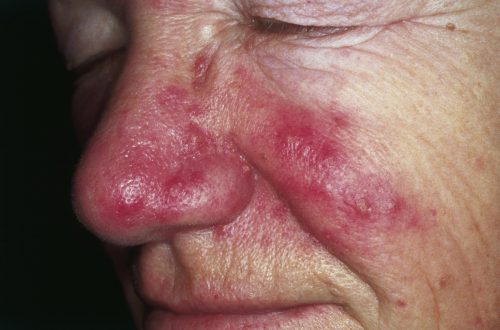
Source: upload.wikimedia.org
When you have blemishes or acne, it can be very frustrating. It’s not supposed to, but, yes, it is. Perhaps because they appeared at a bad time, or because there are too many that came at the same time, or maybe because you feel like you’re just too imperfect to still have acne at this time and age. Whatever your reason, the truth is that acne definitely affects our emotions, thoughts, and ultimately our physical and mental health – the impact is skin-deep.
I’ve suffered long enough from acne to know the unpleasant effects of having this dermatologic condition. A study published in the British Journal of Dermatology states that there is undeniably a link between acne and mental health disorder, such as depression and anxiety. Acne can come in different forms, which may include whiteheads, blackheads, and cysts that can be found on the head, face, back, chest, and shoulders. And according to the same study, about 60% of those with severe acne have a high likelihood of developing major depression.
Some cases of acne can be cured fast with simple treatments like skin creams or ointments, while some people suffer for a long time, leaving scars and permanent pigmentations that make it difficult for them to forget about. Cystic acne, for example, primarily occurs beyond superficial skin and can only be treated through medications, and anyone, even those who take very good care of their skin, can get it and suffer the wrath of having pigmented and disfigured skin.
Psychological Effects Of Acne
There are several effects that acne can have on a person psychologically, which include reduced self-confidence, poor body image, social withdrawal, and depression. Individuals who have acne also suffer from constant ridicule and judgment from others. Teenagers who are diagnosed with long-term acne are especially affected by the opinions of others, which shockingly have led some to commit suicide.
Living With Acne
Having acne can cause stress on your part. Paula Carino, LMHC says “Stress can become a vicious cycle that exacerbates an individual’s allergy or asthma symptoms, while affecting their mental or emotional health.”
Popular singer Lorde has been living with acne and is open about her struggle of overcoming the frustration, insecurity, and self-esteem issues that she shares with hundreds of acne sufferers. Lorde created Instagram videos of her talking about chronic acne and how frustrating it can be to listen to advice from those who don’t suffer from acne themselves. She says:
“Even those who get only occasional flare-ups should realize that each person has a different type of skin, but just because a cream or medicine worked for you doesn’t mean it’s going to work for the other person. I have oily skin and have several usual flare-ups. I change my skincare regimen, and I know for a fact that while this worked for me, it won’t possibly work for you.”

Source: aceshowbiz.com
One of Lorde’s biggest frustrations is that many people think that chronic acne sufferers don’t take good care of their skin and are negligent of their personal hygiene. “But I do wash my face and take care of my skin. The painful truth is that I’m just genetically cursed.”
Do you think she needs anti-depressants? Jessica Koblenz, PsyD says “Some people assume that if they are prescribed antidepressants they will need to take them for the rest of their lives. People can use medication as a tool to help them feel better.”
The Biology Factor
The Canadian Dermatology Association states that biological factors influence the severity of one’s acne. For instance, if your mother and father both have acne, then there’s a higher likelihood that you would suffer from acne too. When there’s too much oil production from your sebaceous glands, this is a result of biology and genetics.
Physical activity, hair and skincare, and acne medications might aggravate the biological aspects, but they are not the primary cause. The CDA also verifies that there is no connection between having acne and improper dietary options, although there is evidence that certain foods have caused acne flare-ups.
Conclusion
On the whole, dermatologists have concluded that when they find ways to treat acne, they must also check their patients’ physical and mental health. Healthcare providers aimed at curing patients of their acne must be aware that acne is a major contributor to depression, anxiety, and other mental health conditions. These providers should urge their patients to be open to confiding to them about any concerns they may have that may change the way they act or think, and these concerns must be taken sincerely.

Source: flickr.com
Although some people with acne can’t find a way to cure it for a long time, there are always means to manage it. They should not suffer on their own. If they feel that their mental health is at stake, they are encouraged to speak up.